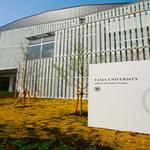Introduction to Tama University (TU)
Overview
Tama University is a private university located in Tokyo, Japan, founded in 1950. The school is known for its high-quality education and rich academic resources. It is a comprehensive university. Tama University is committed to cultivating talents with a high sense of social responsibility and international vision, and contributing to the development of society. The school enjoys a high reputation in many fields such as business, economics, law, engineering, and education.
Campus
Tama University has multiple campuses, the specific addresses are as follows:
Tama Campus: 1-1-1 Tama, Ota-ku, Tokyo
Kamata Campus: 5-29-1 Kamata, Ota-ku, Tokyo
Hachioji Campus: 1-1 Midori-cho, Hachioji, Tokyo
Educational Philosophy
Tama University adheres to the educational philosophy of "freedom and creative spirit" (the spirit of freedom and creation), emphasizing the cultivation of students' independent thinking ability and innovative spirit. The school is committed to cultivating high-quality talents with professional knowledge and practical ability through a comprehensive education system, and to contributing to the development of society.
Disciplines and Majors
Tama University has multiple faculties and graduate schools covering a wide range of fields:
Faculty of Economics
Economics: Learn basic theories and practical methods such as economics and finance, and cultivate professionals who can work in enterprises, financial institutions and other fields.
Faculty of Commerce
Business: Learn basic theories and practical methods such as business management and marketing, and cultivate professionals who can work in enterprises, administrative management and other fields.
Faculty of Law
Law: Learn basic theories and practical methods such as law and jurisprudence, and cultivate professionals who can work in law firms, government agencies and other fields.
Faculty of International Studies
International Studies: Learn basic theories and practical methods such as international relations and cross-cultural communication, and cultivate professionals who can work in international organizations, government agencies and other fields.
Faculty of Education
Elementary Education: Learn basic theories and practical methods such as education and psychology, and cultivate professionals who can work in primary education, educational administration and other fields.
Secondary Education: Learn basic theories and practical methods such as pedagogy and teaching methods of various subjects, and cultivate professionals who can work in secondary education, educational administration and other fields.
Engineering Department
Information Engineering: Learn basic theories and practical methods such as information technology and computer science, and cultivate professionals who can work in IT companies, scientific research institutions and other fields.
Electrical and Electronic Engineering: Learn basic theories and practical methods such as electrical engineering and electronic engineering, and cultivate professionals who can work in power companies, electronic equipment manufacturing and other fields.
Mechanical Engineering: Learn basic theories and practical methods such as mechanical engineering and materials science, and cultivate professionals who can work in manufacturing, research and development institutions and other fields.
Nursing Department
Nursing: Learn basic theories and practical methods such as nursing and clinical nursing, and cultivate professionals who can work in hospitals, nursing institutions and other fields.
Featured Courses
Economics: Learn basic theories and practical methods such as economics, finance, and economic policies.
Business: Learn basic theories and practical methods such as business management, marketing, and accounting.
Law: Learn basic theories and practical methods such as law, jurisprudence, and criminal justice.
International disciplines: learn basic theories and practical methods such as international relations, international politics, and cross-cultural communication.
Primary education disciplines: learn basic theories and practical methods such as pedagogy, psychology, and primary education.
Secondary education disciplines: learn basic theories and practical methods such as pedagogy, teaching methods of various subjects, and secondary education.
Information engineering disciplines: learn basic theories and practical methods such as information technology, computer science, and software development.
Electrical and electronic engineering disciplines: learn basic theories and practical methods such as electrical engineering, electronic engineering, and microelectronics.
Mechanical engineering disciplines: learn basic theories and practical methods such as mechanical engineering, materials science, and design and manufacturing.
Nursing disciplines: learn basic theories and practical methods such as nursing, clinical nursing, and health management.
Practical teaching
Tama University attaches great importance to practical teaching, has advanced laboratories and practice bases, and provides students with rich practical teaching resources. The school has established cooperative relationships with many companies and research institutions, providing students with rich internship and practice opportunities. The school also has practical platforms such as mock courts, laboratories, and studios to provide students with a platform for practical operations.
International Exchange
Tama University actively participates in international exchange programs and has established cooperative relationships with universities in many countries to provide students with opportunities for overseas study and exchange. The school has an International Student Office to provide comprehensive support and services to international students. The school also has English intensive courses and international exchange student programs to help students improve their English and international competitiveness.
Employment Situation
Tama University performs well in terms of employment rate. According to the latest statistics, the employment rate of graduates is relatively high. The school has a career guidance center to provide students with employment consultation, resume writing guidance and interview skills training to help students find employment smoothly.
Cost
Admission fee: about 200,000 yen
Tuition fee:
About 700,000 to 800,000 yen per year (depending on different departments and subjects)
The specific cost may vary. It is recommended to consult the school directly for the latest information.
Campus
Tama University has a beautiful campus environment and complete facilities, including modern teaching buildings, laboratories, libraries and sports facilities. The school also has student dormitories to provide convenient living conditions for out-of-town students.
Contact Information
Tel: +81-3-3762-1111
Fax: +81-3-3762-1112
Email: info@tamagawa.ac.jp
Other Information
Internship Opportunities: The school has established cooperative relationships with many companies and research institutions, providing students with abundant internship and practice opportunities.
Employment Support: The school has a career guidance center to provide students with employment consultation, resume writing guidance, interview skills training and other services to help students find employment smoothly.
Scholarship System: The school has a variety of scholarship systems to help students reduce their financial burden.
-
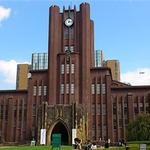
The University of Tokyo
-
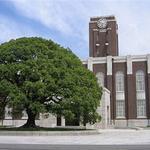
Kyoto University
-
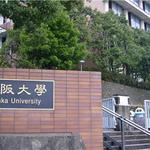
Osaka University
-

Waseda University
-

Hitotsubashi University
-
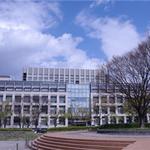
Nagoya University
-
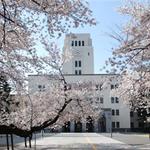
Tokyo Institute of Technology
-
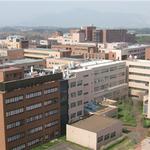
University of Tsukuba
-

Keio University
-
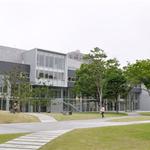
Tohoku University
-

Mesoamerican University
-

Istmo University
-

Mariano Galvez University of Guatemala
-

Regional University of Guatemala
-

Galileo University
-

Francisco Marroquín University
-

Rafael Landívar University
-

University of the Valley of Guatemala
-

University of San Carlos of Guatemala
-

Technological Institute of Tlaxcala Plateau
-

Golfo University
-

Technological University of South Sonora
-

Technological University of Huejotzingo
-

Tizimín Institute of Technology
-

Chilpancingo Institute of Technology

